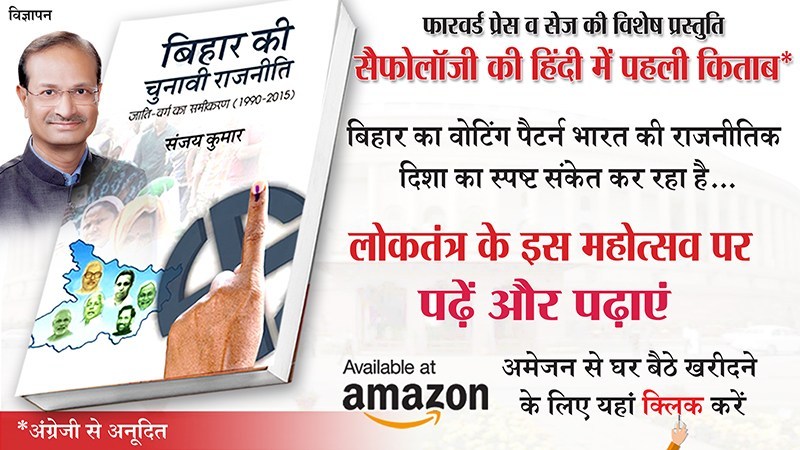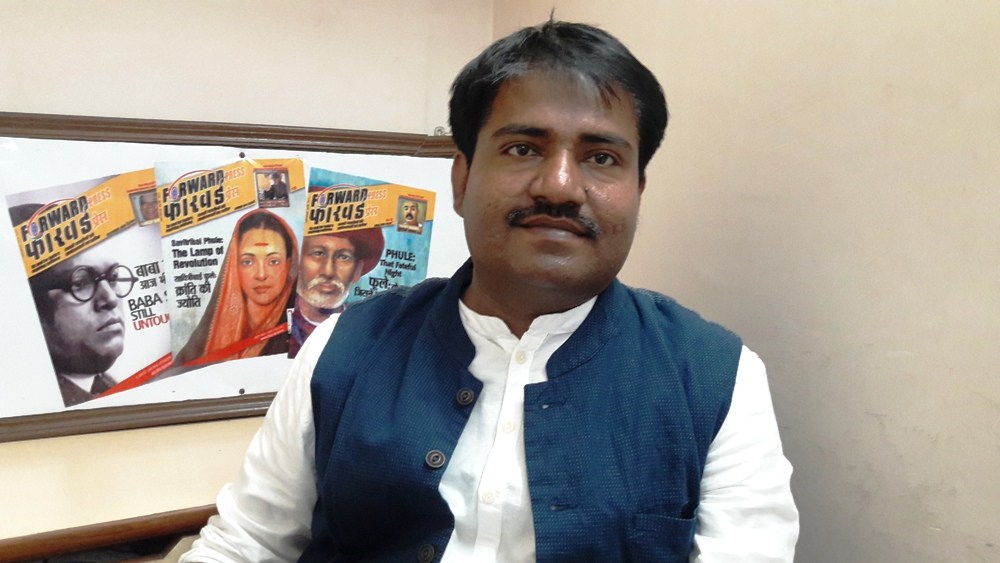There are several similarities between the BJP’s 2014 and 2019 manifestos. But what is conspicuous this time is the little there is on offer for Dalits, Adivasis and Backwards.
This wasn’t the case in 2014. The 2014 manifesto can be read here.
What made the BJP overlook Dalits, Adivasis and OBCs? But overlook it has. Of the 75 pledges the party has made in the manifesto (which the party refers to as the letter of pledges), one of them has to do with Adivasis. Dalits and OBCs just get a passing mention. The 2019 BJP manifesto is available here.
Looking back to 2014
Let us see how the concerns of SCs, STs, OBCs and other weaker sections featured prominently in BJP’s 2014 manifesto. Not only were there separate subheads for each of these sections, the party made several promises too.
This is not all. BJP promised to fight manual scavenging. Among other pledges were a welfare programme for Dalits and the setting up of an institution at the national level to preserve the arts, culture and languages of Adivasis.
Bahujans not a priority this time around
The 2019 manifesto keeps a distance from all these aforementioned issues and promises. The 75 pledges were divided into the following subheads: agriculture, youth, education, infrastructure, railway, health, good financial governance, inclusive development, women and cultural heritage. Under the subhead “inclusive development”, the party has promised six museums dedicated to Adivasi freedom fighters.

This manifesto avoids the term “reservation”, too. There is nothing about reservation in the judiciary or in the private sector. There are two pledges under “Women” though: increasing the women’s share in the workforce and passing a law against “Triple Talaq” to ensure justice to Muslim women. Again, the BJP does not say a word about 33 per cent reservation in Parliament for women.
What is noteworthy is that “SCs, STs and OBCs” has been mentioned only once in the 50-page “letter of pledges”. On page 40, the party states its commitment to securing benefits, provided for by the Constitution, to these sections.
The manifesto has no references to the department-wise roster for reservations in teaching positions recently introduced in universities and caste census.
Vijay Sonkar Shastri: ‘We don’t want to spread casteism’
Vijay Sonkar Shastri, national spokesperson of the BJP, explained the rationale over the phone to FORWARD Press: “The BJP does not want to spread casteism in the country. This is why the ’Sankalp Patra’ does not mention castes. A harmonious and equitable society is the main element of BJP’s ideology. The main point in Prime Minister Narendra Modi’s concept of a new India is ‘Sabka Saath-Sabka Vikas’ [development for everyone].”

When asked if the concerns of SCs, STs and OBCs are not important, Shastri responded: ‘When we talk about providing jobs to the youth, are Dalits, Adivasis and OBCs not included among them?’ Toilets were built in more than 8 crore houses within the last five years. More than half of those may have been Dalit houses. Similarly, among the entrepreneurs who benefited from the Mudra programme, more than half have been Dalits.”
Shastri added: “It’s with great difficulty that Indian politics has left behind caste, sect and religion and moved on to issues of development. The credit for this shift goes to Prime Minister Narendra Modi’s pro-development ideas. Development has become the main discourse today.”
However, if the ‘development’ has become the main discourse, why are BJP leaders hard at work to woo the most backward among OBCs and Dalits. If the party needs their votes, why is there no pledge for them? The answer is not hidden from anyone.
Translation & copy-editing: Anil
Forward Press also publishes books on Bahujan issues. Forward Press Books sheds light on the widespread problems as well as the finer aspects of Bahujan (Dalit, OBC, Adivasi, Nomadic, Pasmanda) society, culture, literature and politics. Contact us for a list of FP Books’ titles and to order. Mobile: +917827427311, Email: info@forwardmagazine.in)
The titles from Forward Press Books are also available on Kindle and these e-books cost less than their print versions. Browse and buy:
The Case for Bahujan Literature
Dalit Panthers: An Authoritative History
Mahishasur: Mithak wa Paramparayen
The Case for Bahujan Literature
Dalit Panthers: An Authoritative History







